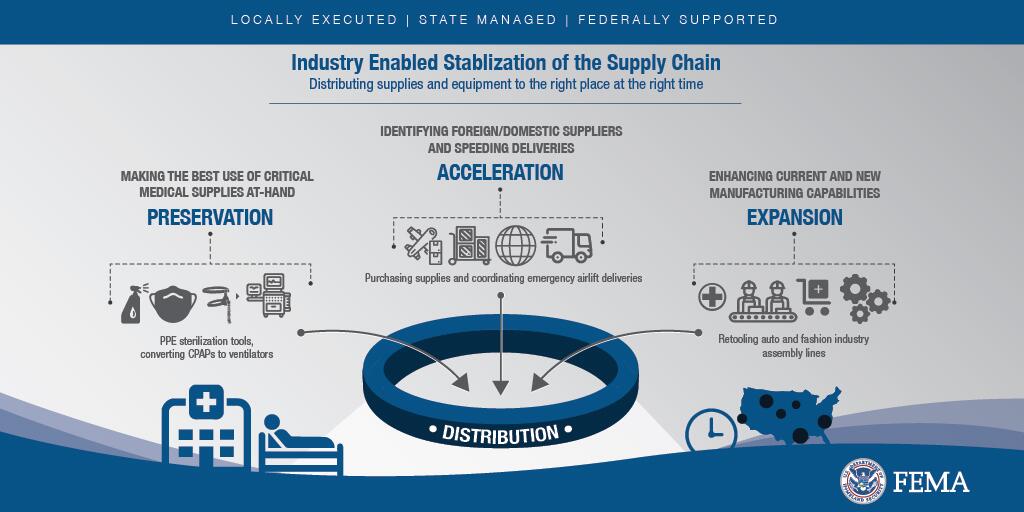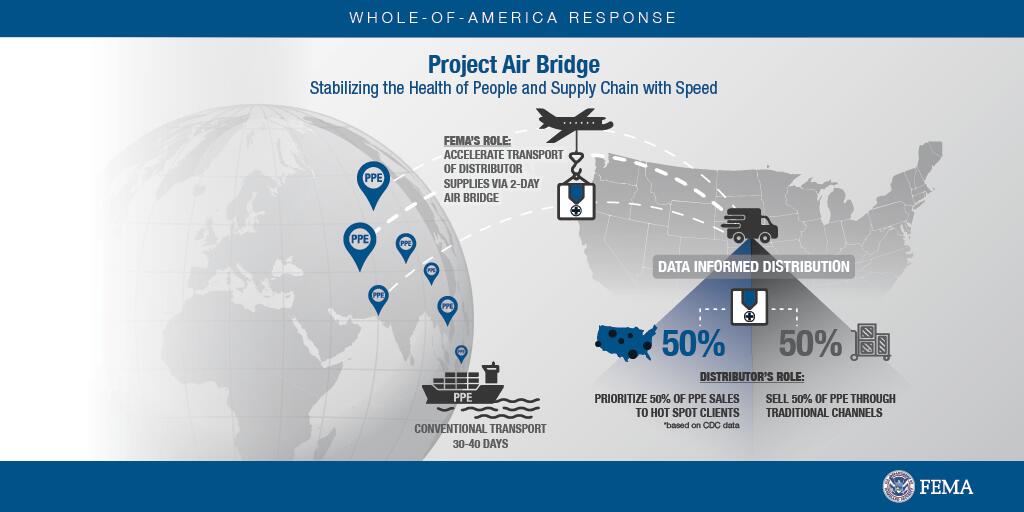The Supply Chain Task Force continues to execute a strategy maximizing the availability of critical protective and lifesaving resources through FEMA for a whole-of-America response. Efforts to date have focused on reducing the medical supply chain capacity gap to both satisfy and relieve demand pressure on medical supply capacity. The task force is applying a four-prong approach of Preservation, Acceleration, Expansion and Allocation to rapidly increase supply today and expand domestic production of critical resources to increase supply long-term.

The preservation line of effort focuses on providing federal guidance to responders and the non-medical sector, such as public service (police, fire, EMT), energy distribution and the food industry on how to preserve supplies when possible, tor reduce impact on the medical supply chain.
The acceleration line of effort provides direct results to help meet the demand for personal protective equipment through the industry to allow responders to get supplies they need as fast as possible.
The expansion line of effort is charged with generating capacity with both traditional and non-traditional manufacturers, such as adding machinery or by re-tooling assembly lines to produce new products.
The allocation of supplies facilitates the distribution of critically needed personal protective equipment to "hot spots" for immediate resupply. States report on supplies and are able to request assistance when they experience a shortage.
The Supply Chain Task Force is working with the major commercial distributors to facilitate the rapid distribution of critical resources in short supply to locations where they are needed most. This partnership enables FEMA and its federal partners to take a whole-of-America approach to combatting COVID-19. The task force is providing distributors with up-to-date information on the locations across the country hardest hit by COVID-19 or in most need of resources now and in the future. The distributors have agreed to focus portions of their distributions on these areas in order to alleviate the suffering of the American people.
A key example of this partnership in action is Project Air Bridge. The air bridge was created to reduce the time it takes for U.S. medical supply distributors to receive personal protective equipment and other critical supplies into the country for their respective customers. FEMA covers the cost to fly supplies into the U.S. from overseas factories, reducing shipment time from weeks to days.

Overseas flights arrive at operational hub airports for distribution to hotspots and nationwide locations through regular supply chains. Flight arrivals do not mean supplies will be distributed in the operational hub locations. Per agreements with distributors, 50 percent of supplies on each plane are for customers within the hotspot areas with most critical needs. The remaining 50 percent is fed into distributors’ normal supply chain to their customers in other areas nationwide. HHS and FEMA determine hotspot areas based on CDC data.
Working together, we are able to efficiently distribute these vital resources to hospitals, nursing homes, long-term care facilities, pre-hospital medical services, state and local governments, and other facilities critical to caring for the American people during this pandemic.

